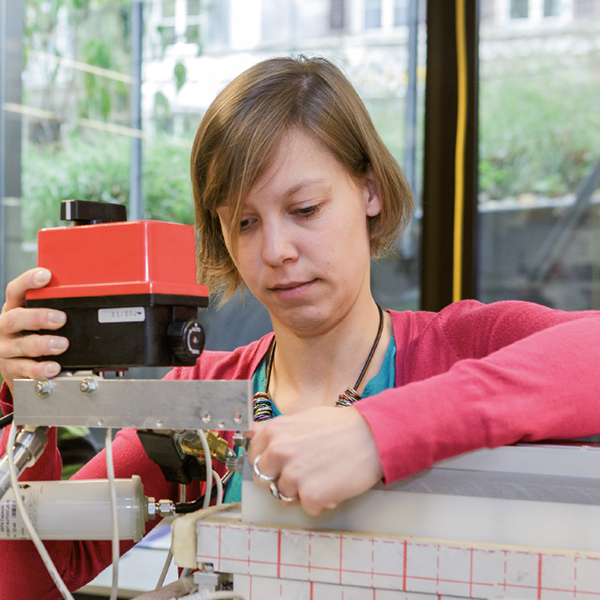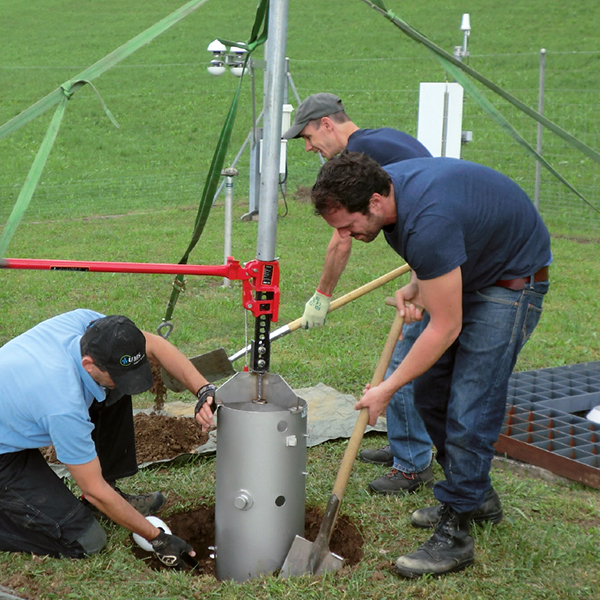Specialised Master in Atmospheric and Climate Science
The Master in Atmospheric and Climate Science is designed to provide an in-depth understanding of climate processes and their interactions – ranging from the molecular to the global scale and from short-lived phenomena to changes over millions of years.


We offer a 3-semester programme bringing together outstanding students with world leading scientists in the field of atmospheric and climate science. You will be part of an international group of students with diverse backgrounds but sharing a common passion for atmospheric and climate science.
Specific learning goals are:
- Gain a quantitative understanding of atmospheric dynamics, climate processes and feedbacks, biogeochemical cycles and
paleoclimatology - Receive in-depth training in numerical modelling of weather and climate
- Have the opportunity to work in the atmospheric chemistry and physics lab
- Participate in field courses and discuss the current weather in a weekly weather discussion
Application for Master's studies
The application window for Master's degree programmes with start in Autumn Semester 2026 opens on 1 April 2026.
Brochure

Information about the Master's degree programme in Atmospheric and Climate Science
Download Infoflyer: Master in Atmospheric and Climate Science (PDF, 1.4 MB)
Courses
The Master's programme starts with an introduction course that involves interaction with lecturers and staff of the Institute for Atmospheric and Climate Science (IAC), with your fellow students and with the Master's students of the University of Bern. During the first two terms you attend module courses (24 credits) and optional courses (20 credits). The following modules and courses are offered:
- Module courses
- Weather systems and atmospheric dynamics
- Climate processes and feedbacks
- Atmospheric composition and cycles
- Climate history and palaeoclimatology
- Hydrology and water cycle
- Weather systems and atmospheric dynamics
- Elective courses
- Laboratory and field work
You select three of these five modules and collect a minimum of six credit points in each module by selecting from a list of courses. Via the optional courses you may extend the contents of a module, catch up with missing Bachelor lectures or broaden your education (e.g. through a Minor). During the third term you work on a Master's thesis covering 30 credit points. While working on your thesis you will be fully integrated into one of the Institute‘s research groups. Preparation for this activity will already take place in the second term in specialised courses and training in the use of scientific tools, writing skills, presentation techniques and team work. You conclude the Master's thesis by writing a report and by presenting the results to your colleagues in a scientific presentation.

“In our lecture courses students learn about the variability of weather systems, their prediction with numerical models and the physical fundamentals that govern their dynamics.”Heini Wernli, Professor for Atmospheric Dynamics, ETH Zurich
Admission
Based on your transcript the admission commission of “Atmosphere and Climate” gives recommendations as to which necessary qualifications you have to catch up with. For our Master's programme we would like to attract students with solid mathematical, physical, chemical and earth system‘s basics. At the same time it is important to our research to employ and educate people with different educational backgrounds. In addition to the basic education in mathematics, physics, and chemistry of the ETH Bachelor in Earth and Climate Sciences programme we would like you to have a good background in the field of Atmosphere and Climate science. In case you have to catch up with some of these credits, you can do this within the scope of the optional courses of the Master's programme, i.e. you can take credit for these courses as part of your Master's studies.
“The studies in atmospheric sciences guided me from wind turbines and energy industry to today's position at the interdisciplinary interface of research, consulting and practice – quite the thing!”Christian Vogler, Project Manager Energy & Climate, Econcept AG
Student advisor
Atmospheric and Climate Science
Institut für Atmosphäre und Klima
Universitätstrasse 16
8092
Zürich
Switzerland
Master's thesis
Visit the Institute of Atmospheric and Climate Science website for information about the Master's thesis in Atmospheric and Climate Science.
Institute for Atmospheric and Climate Science
The Institute for Atmospheric and Climate Science (IAC) pursues leading-edge research on atmospheric physics, chemistry and dynamics, and on global and regional climate. The IAC pioneers activities at the interfaces of these sub-component fields and the interfaces to other disciplines.
